State-sponsored Internet propaganda
State-sponsored Internet propaganda is a government's use of paid Internet propagandists with the intention of swaying public opinion, undermining dissident communities, or changing the perception of what is the dominant view. It is considered a form of astroturfing.
The following is a list of the known or alleged examples of state-sponsored Internet propaganda:
Asia-Pacific
Asia is noted for having the largest and most influential numbers of state-sponsored propaganda, due to the growth of Internet activities in the continent.
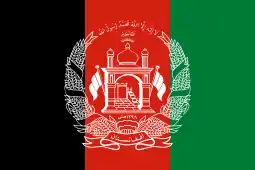 Afghanistan: Government of Afghanistan uses state-sponsors Internet troll army to push their narrative. The aim of the government-sponsored troll army is to push Afghan government narrative and exaggerate Afghan Taliban casualties.[1] Sometimes the information posted by government-sponsored troll army is picked up by uncritical section of the Afghanistan's media and reported without any additional confirmation.[1]
Afghanistan: Government of Afghanistan uses state-sponsors Internet troll army to push their narrative. The aim of the government-sponsored troll army is to push Afghan government narrative and exaggerate Afghan Taliban casualties.[1] Sometimes the information posted by government-sponsored troll army is picked up by uncritical section of the Afghanistan's media and reported without any additional confirmation.[1]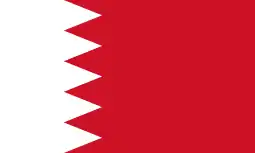 Bahrain: Since the Arab Spring and subsequent uprising, the Government of Bahrain has increased its political and media censorship, as well as launching propaganda disinformation. In 2019, Bahrain was listed as one of 70 countries with widespread Internet propaganda misinformation and hiring cyber hackers to censor bad news about Bahraini Government.[2] From 2017 when conflict with Qatar emerged, Bahrain also participated on an Internet propaganda campaign against Qatar and trying to spread sectarian conflicts.[3]
Bahrain: Since the Arab Spring and subsequent uprising, the Government of Bahrain has increased its political and media censorship, as well as launching propaganda disinformation. In 2019, Bahrain was listed as one of 70 countries with widespread Internet propaganda misinformation and hiring cyber hackers to censor bad news about Bahraini Government.[2] From 2017 when conflict with Qatar emerged, Bahrain also participated on an Internet propaganda campaign against Qatar and trying to spread sectarian conflicts.[3] China: 50 Cent Party and Internet Water Army are the two first recognized government trolls, founded in 2004.[4][5] They have changed and become increasingly radical since the 2019–20 Hong Kong protests.[6] In June 2020 Twitter identified and deleted over 170,000 Twitter accounts allegedly linked to a Chinese government disinformation campaign against both Hong Kong and the United States.[7]
China: 50 Cent Party and Internet Water Army are the two first recognized government trolls, founded in 2004.[4][5] They have changed and become increasingly radical since the 2019–20 Hong Kong protests.[6] In June 2020 Twitter identified and deleted over 170,000 Twitter accounts allegedly linked to a Chinese government disinformation campaign against both Hong Kong and the United States.[7]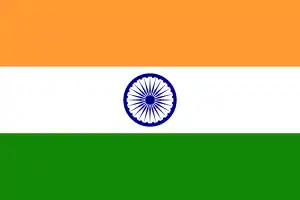 India: India has a large and influential portion of population with strong nationalist fervor, thus it leads to the rise of propaganda-sponsored trolls. Since Narendra Modi came to power, the Bharatiya Janata Party is known for using exclusive troll disinformation to repress and monitor any opponents against his government.[8] Indian propaganda, both private and state-sponsored, has also attacked Jeremy Corbyn after he criticized Indian handling of Kashmir.[9] In 2019, a European News Watchdog discovered 265 bogus media outlets in 65 countries which are managed by an "Indian influence network".[10] The network of fake news websites were used to target policy makers in the United States and the European Union to act against Pakistan.[11] The aim of those websites is to spread propaganda and influence public perception on Pakistan.[12]
India: India has a large and influential portion of population with strong nationalist fervor, thus it leads to the rise of propaganda-sponsored trolls. Since Narendra Modi came to power, the Bharatiya Janata Party is known for using exclusive troll disinformation to repress and monitor any opponents against his government.[8] Indian propaganda, both private and state-sponsored, has also attacked Jeremy Corbyn after he criticized Indian handling of Kashmir.[9] In 2019, a European News Watchdog discovered 265 bogus media outlets in 65 countries which are managed by an "Indian influence network".[10] The network of fake news websites were used to target policy makers in the United States and the European Union to act against Pakistan.[11] The aim of those websites is to spread propaganda and influence public perception on Pakistan.[12]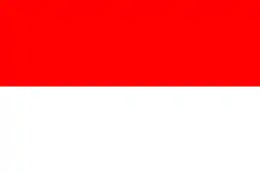 Indonesia: Indonesia has engaged by using state-sponsored troll army to spread propaganda against independence movement of West Papua and promoting pro-incumbent campaign in 2019 Indonesian presidential election.[13][14] Indonesian President Joko Widodo has accused his opposition group for using propaganda, exclusive from Russian one, to spread against his government.[15]
Indonesia: Indonesia has engaged by using state-sponsored troll army to spread propaganda against independence movement of West Papua and promoting pro-incumbent campaign in 2019 Indonesian presidential election.[13][14] Indonesian President Joko Widodo has accused his opposition group for using propaganda, exclusive from Russian one, to spread against his government.[15]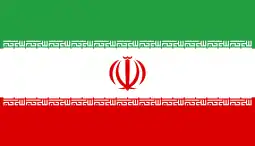 Iran: Islamic Republic's troll army, known to be supportive for Ayatollah Khomeini and the current government of Iran, and also criticizing any attempts that against it.[16] In April 2019, the Oxford University Computational Propaganda Project published a study on an Iranian-related campaign on Twitter targeting Arab users.[17] The Computational Propaganda team found that this Iranian-related campaign on Twitter focused on masquerading as Arabic news outlets to gain the trust of Arab Twitter users.[17]
Iran: Islamic Republic's troll army, known to be supportive for Ayatollah Khomeini and the current government of Iran, and also criticizing any attempts that against it.[16] In April 2019, the Oxford University Computational Propaganda Project published a study on an Iranian-related campaign on Twitter targeting Arab users.[17] The Computational Propaganda team found that this Iranian-related campaign on Twitter focused on masquerading as Arabic news outlets to gain the trust of Arab Twitter users.[17]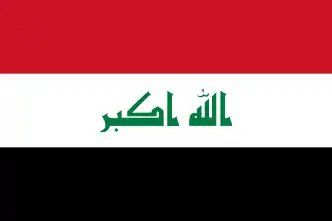 Iraq: Due to the sectarian nature of the country, Iraqi Internet propaganda is also ranged between different groups. During the rise of Islamic State of Iraq and the Levant, the group had managed to operate a systematic propaganda indoctrination on the Internet to confuse Iraqi civilians.[18][19] According from human rights activist Faisal Al Mutar, Iraqi online propaganda has been in full speed even after the death of Saddam Hussein.[20]
Iraq: Due to the sectarian nature of the country, Iraqi Internet propaganda is also ranged between different groups. During the rise of Islamic State of Iraq and the Levant, the group had managed to operate a systematic propaganda indoctrination on the Internet to confuse Iraqi civilians.[18][19] According from human rights activist Faisal Al Mutar, Iraqi online propaganda has been in full speed even after the death of Saddam Hussein.[20] Israel: Israeli State-sponsored Internet propaganda include the Hasbara, Hasbara Fellowships and the Jewish Internet Defense Force. The systems are frequently used by Likud leadership to promote their opinions and point of view and spread anti-Palestinian and anti-Iranian news.[21][22] Supporters generally frame Israel's internet propaganda as part of its fight against anti-Israeli agitation and attempts to delegitimize it.[23]
Israel: Israeli State-sponsored Internet propaganda include the Hasbara, Hasbara Fellowships and the Jewish Internet Defense Force. The systems are frequently used by Likud leadership to promote their opinions and point of view and spread anti-Palestinian and anti-Iranian news.[21][22] Supporters generally frame Israel's internet propaganda as part of its fight against anti-Israeli agitation and attempts to delegitimize it.[23]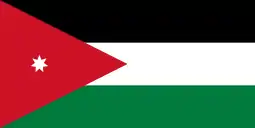 Jordan: While Jordan is regarded as freer country, nonetheless the country is not immune from Internet propaganda. Recent widespread of protests in regard to the Arab Spring have led to increase of propaganda and Internet censorship in Jordan, laws have been passed threatening freedom of speech.[24] Internet operation by the state propaganda also seeks to weaken the independent voices of journalists in the country. By 2019, freedom of media in Jordan has declined with regard to growing Internet propaganda by the Government.[25]
Jordan: While Jordan is regarded as freer country, nonetheless the country is not immune from Internet propaganda. Recent widespread of protests in regard to the Arab Spring have led to increase of propaganda and Internet censorship in Jordan, laws have been passed threatening freedom of speech.[24] Internet operation by the state propaganda also seeks to weaken the independent voices of journalists in the country. By 2019, freedom of media in Jordan has declined with regard to growing Internet propaganda by the Government.[25] Malaysia:
Malaysia:
- 1. The Malaysian Government has begun a systematic campaign online to defame the Shiites in accordance to recent ban of practicing Shia Islam in Malaysia since 2010s.[26]
- 2. The "Tentera Bawang" (Malay: Onion Army) is also appeared at certain pro-Israeli Facebook pages to defend Malaysian government action of barring Israeli participants during 2019 World Para Swimming Championships.[27][28]
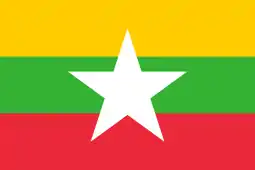 Myanmar: The Tatmadaw and the Burmese Government has sponsored propaganda through Internet and dismiss its atrocities towards its minorities like the Rohingya, Shan, Kachin and Karen people.[29][30]
Myanmar: The Tatmadaw and the Burmese Government has sponsored propaganda through Internet and dismiss its atrocities towards its minorities like the Rohingya, Shan, Kachin and Karen people.[29][30]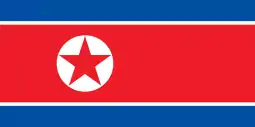 North Korea: the troll army of North Korea, which is known to be supportive for the Kim dynasty's rule, and anti-South Korean, anti-American and pro-North Korean regime. They first appeared in 2013.[31]
North Korea: the troll army of North Korea, which is known to be supportive for the Kim dynasty's rule, and anti-South Korean, anti-American and pro-North Korean regime. They first appeared in 2013.[31]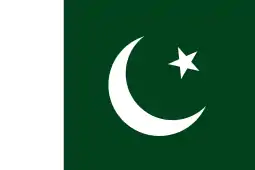 Pakistan: Pakistan propaganda is mostly aiming in favor to Pakistani narratives and censoring reports about Pakistan.[32] In November 2019, security and intelligence agencies of India claimed to have identified and traced more than 5,000 Pakistan-based social media handles actively spreading fake and false propaganda on Citizenship Amendment Act 2019; according to Indian agencies some of them were using "deep fake videos" of protests to incite communal violence in the country.[33] In January 2020, Pakistan's ISPR (Inter-Service Public Relations) was accused by India of recruiting teenagers to spread propaganda and disinformation against India regarding protest.[34]
Pakistan: Pakistan propaganda is mostly aiming in favor to Pakistani narratives and censoring reports about Pakistan.[32] In November 2019, security and intelligence agencies of India claimed to have identified and traced more than 5,000 Pakistan-based social media handles actively spreading fake and false propaganda on Citizenship Amendment Act 2019; according to Indian agencies some of them were using "deep fake videos" of protests to incite communal violence in the country.[33] In January 2020, Pakistan's ISPR (Inter-Service Public Relations) was accused by India of recruiting teenagers to spread propaganda and disinformation against India regarding protest.[34]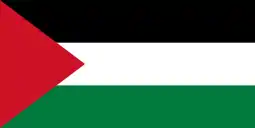 Palestine: Palestinian propaganda has been used to win the public relations war with Israel, often by targeting Saudi Arabia, the United Arab Emirates, and other Arab states purported to be "Zionist sympathizers."[35] A 2002 report from Israeli military intelligence linked Iran and Syria with financial backing of pro-Palestinian propaganda.[36]
Palestine: Palestinian propaganda has been used to win the public relations war with Israel, often by targeting Saudi Arabia, the United Arab Emirates, and other Arab states purported to be "Zionist sympathizers."[35] A 2002 report from Israeli military intelligence linked Iran and Syria with financial backing of pro-Palestinian propaganda.[36] Philippines: The Oxford University released a study claiming that hired "keyboard trolls" played a role in President Rodrigo Duterte's presidential campaign in 2016. The study said that the Duterte campaign team spent at least $200 thousand and hired 400 to 500 people to defend Duterte from online critics. It also added that the hired "trolls" remain to support Duterte and his administration after he was elected. Online trolls were allegedly used by the administration to silence critics through threats of violence and rape to people critical to Duterte's policies.[37] Duterte, while admitted to paying people to support him online during the elections said he has followers referring to his staunch supporter, Mocha Uson who runs the support group Mocha Uson Blog but insists that Uson offers her services free.[38]
Philippines: The Oxford University released a study claiming that hired "keyboard trolls" played a role in President Rodrigo Duterte's presidential campaign in 2016. The study said that the Duterte campaign team spent at least $200 thousand and hired 400 to 500 people to defend Duterte from online critics. It also added that the hired "trolls" remain to support Duterte and his administration after he was elected. Online trolls were allegedly used by the administration to silence critics through threats of violence and rape to people critical to Duterte's policies.[37] Duterte, while admitted to paying people to support him online during the elections said he has followers referring to his staunch supporter, Mocha Uson who runs the support group Mocha Uson Blog but insists that Uson offers her services free.[38] Qatar: Qatari propaganda has previously been in line with Saudi and Emirati until the 2017–19 Qatar diplomatic crisis, with Al Jazeera being a notable evidence of Qatari propaganda spreading in promotion of violence, its anti-American view and nurturing Islamist movements.[39] Since 2017, Al Arabiya, a Saudi-based channel, accused Qatari Government for ongoing media onslaught by sponsoring massive propaganda networks in Politico to defame the Saudis and raise support for Qatar.[40]
Qatar: Qatari propaganda has previously been in line with Saudi and Emirati until the 2017–19 Qatar diplomatic crisis, with Al Jazeera being a notable evidence of Qatari propaganda spreading in promotion of violence, its anti-American view and nurturing Islamist movements.[39] Since 2017, Al Arabiya, a Saudi-based channel, accused Qatari Government for ongoing media onslaught by sponsoring massive propaganda networks in Politico to defame the Saudis and raise support for Qatar.[40]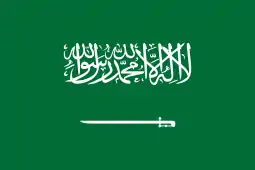 Saudi Arabia:
Saudi Arabia:
- 1. King's Brigade, known to be supportive for the Saud family and the monarchy. Its mission is to denounce any criticisms against the Saud family, and praising Sharia Law as well as lethal actions by the Saudi Government.[41] Recently, it has targeted Palestinians and other opposing the Saudi influence like Qatar.[42][43]
- 2. In December 2019, Twitter removed 5,929 accounts for violating their manipulation policies. The company investigated and attributed these accounts to a single state-run information operation, which originated in Saudi Arabia.[44]
- 1. Ruling party People's Action Party and its youth wing Young PAP have been officially reported to have organized teams to work both publicly and anonymously to counter criticism of party and government in cyberspace since 1995.[45][46][47][48] As reported by the Straits Times, as of 2007, the group consists of two teams, led by members of parliament of People's Action Party, where one team strategises the campaign the other team executes the strategies.[49]
- 2. There are also pro-party individuals known as 'Internet Brigade'[50][51] who claim to be not affiliated with the party nor officially endorsed by party, who setup elaborate social media and web page to 'defend' the ruling party of online chatters and to criticize social-political websites critical of the government and members of opposition parties. They have information about their party's endorsed candidate personal details and events not publicly known and MP elected as their members, Often they have anonymous members, sometimes with fake or purchased identity, re-posting on Internet forums and social-media their published articles[52][53]
- 3. The Info-communications Media Development Authority (IMDA) frequently engages advertising agencies to promote civic campaigns and national day celebrations on traditional media, video-sharing websites and social media.[54] Some of these nation-building efforts are seen as selective in choosing the historical narratives, often only focusing the achievements of the ruling party.[55]
 Syria: Owing to its long history of censorship, Syria has some of the most extensive state-sponsored propaganda. Since the Syrian Civil War began, President Bashar al-Assad has frequently allowed pro-regime sockpuppets to disinform about the conflict in favor for his regime.[56] The White Helmets, a humanitarian organization rescuing Syrian civilians from conflict zones, is a major target of the Syrian government's disinformation campaign.[57]
Syria: Owing to its long history of censorship, Syria has some of the most extensive state-sponsored propaganda. Since the Syrian Civil War began, President Bashar al-Assad has frequently allowed pro-regime sockpuppets to disinform about the conflict in favor for his regime.[56] The White Helmets, a humanitarian organization rescuing Syrian civilians from conflict zones, is a major target of the Syrian government's disinformation campaign.[57]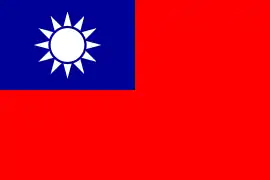 Taiwan: Taiwan has been a major participant of propaganda movement, sponsoring major propaganda to defy Chinese influence.[58]
Taiwan: Taiwan has been a major participant of propaganda movement, sponsoring major propaganda to defy Chinese influence.[58] Turkey: 6,000 paid social media commentators known as "AK Trolls" mainly spreading pro-Erdogan propaganda and attack those opposing Erdogan (2016).[59] In June 2020 Twitter removed 7,340 accounts engaging in "coordinated inauthentic activity" targeted at Turkish citizens;[60] the removal prompted Erdogan's administration to appear to threaten Twitter with government restrictions.[61]
Turkey: 6,000 paid social media commentators known as "AK Trolls" mainly spreading pro-Erdogan propaganda and attack those opposing Erdogan (2016).[59] In June 2020 Twitter removed 7,340 accounts engaging in "coordinated inauthentic activity" targeted at Turkish citizens;[60] the removal prompted Erdogan's administration to appear to threaten Twitter with government restrictions.[61]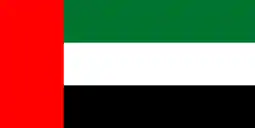 United Arab Emirates: During the current 2017–19 Qatar diplomatic crisis, the Emirati Government has openly allowed and funded the troll propaganda army to dismiss Qatari rejection and spread anti-Qatari propaganda, the first time the UAE took state-sponsored propaganda activities against another country.[62][63]
United Arab Emirates: During the current 2017–19 Qatar diplomatic crisis, the Emirati Government has openly allowed and funded the troll propaganda army to dismiss Qatari rejection and spread anti-Qatari propaganda, the first time the UAE took state-sponsored propaganda activities against another country.[62][63]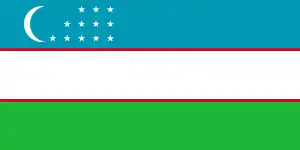 Uzbekistan: In order to control its population, the Uzbek government established its own social network to spread Internet censorship and propaganda.[64] Even with the death of Islam Karimov, Tashkent remains firm to ongoing political censorship on social media.[65]
Uzbekistan: In order to control its population, the Uzbek government established its own social network to spread Internet censorship and propaganda.[64] Even with the death of Islam Karimov, Tashkent remains firm to ongoing political censorship on social media.[65]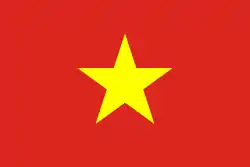 Vietnam:
Vietnam:
- 1. Public opinion brigades.[66] As of 2017, the military currently employs at least 10,000 members in a special force, named Force 47, to counter criticisms of the government in cyberspace[67][68] and hacking into dissident anti-government websites and installing spyware to track visitors.[69]
- 2. In December 2019, Facebook removed 900 accounts, groups and pages on its own platform and Instagram, due to inauthentic behaviour and spreading political agenda. These accounts reportedly belonged to two separate groups in Georgia and Vietnam.[44]
Africa
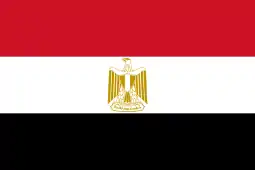 Egypt: since taking power, Abdel Fattah el-Sisi was accused of spreading and financing propaganda leaflets in support for his regime's political crackdowns on his opponents and hacking to promote support for el-Sisi.[70][71]
Egypt: since taking power, Abdel Fattah el-Sisi was accused of spreading and financing propaganda leaflets in support for his regime's political crackdowns on his opponents and hacking to promote support for el-Sisi.[70][71]
Europe
 EU: East StratCom Task Force is a part of the administration of the European External Action Service, focused on proactive communication of European Union policies and promoting 'European values' in the Eastern neighbourhood (Armenia, Azerbaijan, Belarus, Georgia, Moldova, Ukraine) and Russia .
EU: East StratCom Task Force is a part of the administration of the European External Action Service, focused on proactive communication of European Union policies and promoting 'European values' in the Eastern neighbourhood (Armenia, Azerbaijan, Belarus, Georgia, Moldova, Ukraine) and Russia .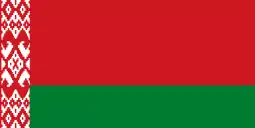 Belarus: the Lukashenko Government has taken step to spread disinformation in accordance to his rule and, sometimes, in line with Russian troll propaganda, from blaming Poland and Ukraine for instigating problems, to lethal threats against activists.[72][73] Disinformation became increasingly intensified following the 2020 Belarusian protests, with trolls from Russia and Serbia actively participated to spread disinformation and igniting fears for Belarusian population to turn against the protests.[74]
Belarus: the Lukashenko Government has taken step to spread disinformation in accordance to his rule and, sometimes, in line with Russian troll propaganda, from blaming Poland and Ukraine for instigating problems, to lethal threats against activists.[72][73] Disinformation became increasingly intensified following the 2020 Belarusian protests, with trolls from Russia and Serbia actively participated to spread disinformation and igniting fears for Belarusian population to turn against the protests.[74] Bulgaria: Internet trolls have become a problem in Bulgaria since 2010s, with troll armies being used by various political parties to attack and threaten each other.[75] Despite attempts to reduce and end the internet trolls since 2014, the issue remains unaddressed and becomes increasingly intensified by 2020 under the corruption of Boyko Borisov's government.[76][77]
Bulgaria: Internet trolls have become a problem in Bulgaria since 2010s, with troll armies being used by various political parties to attack and threaten each other.[75] Despite attempts to reduce and end the internet trolls since 2014, the issue remains unaddressed and becomes increasingly intensified by 2020 under the corruption of Boyko Borisov's government.[76][77] France: Facebook alleges in December 2020, that accounts link to the French military has been posing as Africans in French and Arabic language websites catering to the region to promote views in favor of France. The accounts promoted claims of Russian interference in the election in the Central African Republic, expressed supportive views on the French military involvement in the region, and criticized Russian military involvement in the region. These accounts also interacted with alleged Russian accounts.[78]
France: Facebook alleges in December 2020, that accounts link to the French military has been posing as Africans in French and Arabic language websites catering to the region to promote views in favor of France. The accounts promoted claims of Russian interference in the election in the Central African Republic, expressed supportive views on the French military involvement in the region, and criticized Russian military involvement in the region. These accounts also interacted with alleged Russian accounts.[78] Poland: once the leading nations in democratization efforts post-Soviet era, since the election of Andrzej Duda to presidency in 2010s, freedom of media in Poland has suffered significant deterioration, with state-sponsored Internet media that aligned to conservative movement attacking liberal groups in Poland, and criticizing European leaders for its politics that is seen to be abnormal.[79] In 2019, a troll farm group aligned to the conservative movement close to the Polish government was discovered in Wrocław.[80] In 2020 Polish presidential election, Duda Government was accused of spreading propaganda to manipulate public and to enhance the authoritarian rule.[81]
Poland: once the leading nations in democratization efforts post-Soviet era, since the election of Andrzej Duda to presidency in 2010s, freedom of media in Poland has suffered significant deterioration, with state-sponsored Internet media that aligned to conservative movement attacking liberal groups in Poland, and criticizing European leaders for its politics that is seen to be abnormal.[79] In 2019, a troll farm group aligned to the conservative movement close to the Polish government was discovered in Wrocław.[80] In 2020 Polish presidential election, Duda Government was accused of spreading propaganda to manipulate public and to enhance the authoritarian rule.[81] Russia:
Russia:
- 1. Web brigades first alleged in April 2003
- 2. CyberBerkut
- 3. Internet Research Agency, also known as "Trolls from Olgino". Identified as "trolling"/astroturfing company operating on numerous sites.
 United Kingdom: "Online Covert Action" and other missions (like the "77th Brigade) by the Joint Threat Research Intelligence Group, revealed by Edward Snowden in February 2014.[82]; Bell Pottinger firm, bankrupt in 2017, widely used the reputation of Lord Bell to forge Internet information in favor of their customers, which included governments.
United Kingdom: "Online Covert Action" and other missions (like the "77th Brigade) by the Joint Threat Research Intelligence Group, revealed by Edward Snowden in February 2014.[82]; Bell Pottinger firm, bankrupt in 2017, widely used the reputation of Lord Bell to forge Internet information in favor of their customers, which included governments. Ukraine: although Volodymyr Zelenskyi has polished his image to bolster his reputation and to win support from nationalist groups for his democratization attempts, accusation that he is spreading fake news emerged since his Presidency, along with his open endorsement to media censorship, his dubious link with Russia, and increasing attack on other free media staffs.[83][84][85]
Ukraine: although Volodymyr Zelenskyi has polished his image to bolster his reputation and to win support from nationalist groups for his democratization attempts, accusation that he is spreading fake news emerged since his Presidency, along with his open endorsement to media censorship, his dubious link with Russia, and increasing attack on other free media staffs.[83][84][85]
Americas
 Mexico: According to researchers quoted by the BBC, the government and multiple competing political parties have used bots. According to a 2017 paper, government-sponsored "spam-bots" have been used to "target journalists" and "spread misinformation".[86]
Mexico: According to researchers quoted by the BBC, the government and multiple competing political parties have used bots. According to a 2017 paper, government-sponsored "spam-bots" have been used to "target journalists" and "spread misinformation".[86] United States:
United States:
- 1. Center for Strategic Counterterrorism Communications, founded in 2010.[87]
- 2. Operation Earnest Voice, officially started in 2011.
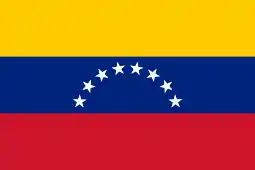 Venezuela: Bolivarian Army of Trolls, founded in 2017, is tasked with disseminating Bolivarian propaganda and spreading disinformation.
Venezuela: Bolivarian Army of Trolls, founded in 2017, is tasked with disseminating Bolivarian propaganda and spreading disinformation.
See also
References
- Ezzatullah Mehrdad (15 October 2019). "Inside Afghanistan's Online Battlefield". The Diplomat.
- Alba, Davey; Satariano, Adam (26 September 2019). "At Least 70 Countries Have Had Disinformation Campaigns, Study Finds". The New York Times.
- "Automated sectarianism and pro-Saudi propaganda on Twitter | Exposing the Invisible".
- "China's battle with the 'internet water army'". Financial Times. Retrieved 18 October 2020.
- "Who Are the Chinese Trolls of the '50 Cent Army'?". Voice of America. 7 October 2016.
- "China troll army's battle expeditions leap Great Firewall". South China Morning Post. August 7, 2019.
- "Twitter says Chinese "state-linked" disinformation network purged as Zoom admits a misstep". www.cbsnews.com. 2020. Retrieved 13 June 2020.
- "When Narendra Modi and his troll army massacred the freedom of expression". gulfnews.com.
- "Jeremy Corbyn Faces India's Troll Army on Kashmir".
- - (2019-11-13). "Uncovered: 265 coordinated fake local media outlets serving Indian interests". EU DisinfoLab. Retrieved 2019-11-19.CS1 maint: numeric names: authors list (link)
- "India disinformation network targets Pakistan, says European watchdog". TRTWorld. 2019-11-14. Retrieved 2019-11-19.
- "265 fake news websites in over 65 countries managed by Indian influence networks: study". The Hindu. 14 November 2019.
- "Twitter Analysis: Identifying a Pro-Indonesian Propaganda Bot Network". 3 September 2019.
- Twitter shutters anti-Turkey Saudi, Egyptian accounts Anadolu Agency
- "Russia rejects Indonesia election 'propaganda' accusations".
- "ANALYSIS: Unveiling Iranian pro-government trolls and cyber-warriors". 16 January 2018.
- Elswah, Mona; Howard, Philip N.; Narayanan, Vidya (2019). "Iranian Digital Interference in the Arab World". Computational Propaganda Project. Retrieved October 29, 2019.
- "Studies Combined: Social Media and Online Visual Propaganda as Political and Military Tools of Persuasion".
- Warrick, Joby (August 18, 2017). "ISIS's propaganda machine is thriving as the physical caliphate fades" – via www.washingtonpost.com.
- "What Growing up in Iraq Taught Me About Propaganda". 25 June 2018.
- "Inside Israel's million dollar troll army". 12 June 2019.
- "Release the Trolls". jacobinmag.com.
- "Israel Making Positive Strides in Uphill Battle on the Information Front". 2014-08-01. Retrieved 2021-02-07.
- "Hate Speech: Jordan's new definition threatens press freedom".
- "Jordan's Online Media Freedom at Stake" (PDF). ipi.media. 2015. Retrieved 2020-06-15.
- "Anti-Shia Propaganda Spreading Worldwide".
- "'Kuasa membawang', akaun FB pro Israel 'ditutup'" (in Malay). Harian Metro. 20 January 2019.
- "Tahniah 'bawangrians' Malaysia, anda memang berani!" (in Malay). Sinar Harian. 21 January 2019.
- "MEDIA, CENSORSHIP AND PROPAGANDA IN MYANMAR | Facts and Details".
- "Did the Myanmar Times editor admit to producing propaganda? | Coconuts Yangon". 18 August 2017.
- Mike Firn (13 August 2013). "North Korea builds online troll army of 3,000". The Telegraph.
- "The Global Disinformation Order" (PDF). comprop.oii.ox.ac.uk. 2019. Retrieved 2020-06-15.
- "Around 5,000 Pak social media handles spread fake news on CAA". www.outlookindia.com.
- "Pakistan ISPR recruits youth for cyber propaganda war on India". The Economic Times. 3 January 2020.
- "Exploiting Compassion: Abuse of the Media by Palestinian Propaganda".
- "Iran and Syria as Strategic Support for Palestinian Terrorism". mfa.gov.il. 30 September 2002. Retrieved 2020-06-15.
- "Duterte: No money for trolls, rigged surveys". ABS-CBN News. 24 June 2017. Retrieved 30 October 2017.
- Valente, Catherine (25 July 2017). "Duterte on use of 'troll' army: I have followers". The Manila Times. Retrieved 30 October 2017.
- "US believes al Jazeera is 'propaganda tool of Qatar'". 6 December 2010.
- "Qatari propaganda campaign intensifies with paid articles in Politico newsletter". 8 July 2019.
- "Saudi Arabia's Twitter Troll Army is Lethal".
- Shehada, Muhammad (28 July 2019). "Saudi Arabia's Vicious Troll Army Has a New Target: Palestinians". Haaretz.
- Pinnell, Owen (3 June 2018). "The online war between Qatar and Saudi Arabia". BBC News.
- "Twitter and Facebook remove accounts in interference crackdown". The York Press. Retrieved 20 December 2019.
- "Mickey Unbound". WIRED. 1 (4). 1995-07-01. p. 51. Retrieved 2017-08-25.
- Rodan, Garry (1998-03-01). "The Internet and Political Control in Singapore". Political Science Quarterly. 113 (1): 63–89. doi:10.2307/2657651. ISSN 1538-165X. JSTOR 2657651.
- Chen, Tommi (14 March 1995). "Internet world watches as Young PAP enters cyberspace". The Straits Times.
- Tesoro, Jose Manuel (11 October 1996). "The Great Online Debate". Asiaweek.
- Li Xueying (3 February 2007). "PAP moves to counter criticism of party, Govt in cyberspace". The Straits Times.
- Seah Chiang Nee (24 November 2012). "PAP's quiet counter-insurgency". The Star.
- Koh, Gillian (2014). Singapore Perspectives 2013: Governance. Singapore: World Scientific Pub. Co. p. 56. ISBN 9789814520751.
- Leonard Lim (16 September 2011). "Netizens setup Facebook page to defend PAP, Govt in cyberspace". The Straits Times.
- Pearl Lee (20 September 2015). "Supporters seek to amplify PAP voice online". The Straits Times.
- Tay, Vivienne. "Massive government tender sees 30 agencies added to roster". Marketing Interactive.
- Tan, Kenneth Paul (10 April 2016). "Choosing What to Remember in Neoliberal Singapore: The Singapore Story, State Censorship and State-Sponsored Nostalgia". Asian Studies Review. 40 (2): 231–249. doi:10.1080/10357823.2016.1158779. S2CID 147095200.
- "STATE PROPAGANDA IN SYRIA: FROM WAR CRIMES TO PIPELINES [ISCI Report]".
- Solon, Olivia (18 December 2018). "How Syria's White Helmets became victims of an online propaganda machine". The Guardian. London. Retrieved 3 March 2010.
- Taiwan's Informal Diplomacy and Propaganda | Gary D. Rawnsley | Palgrave Macmillan.
- Benedictus, Leo (2016-11-06). "Invasion of the troll armies: 'Social media where the war goes on'". the Guardian. Retrieved 2020-06-15.
- "Why has China slapped tariffs on Australian barley and what can Australia do about it?". the Guardian. 19 May 2020. Retrieved 13 June 2020.
- "Twitter slammed in China, Turkey, Russia after culling 'manipulative' accounts". DW.COM. 12 June 2020. Retrieved 13 June 2020.
- Monitoring, B. B. C. (August 31, 2018). "Online trolls and fakery rises in Arab world" – via www.bbc.com.
- "Troll Army: A Weapon for Arab authoritarian regimes". thepeninsulaqatar.com.
- "Uzbekistan launches its 38th own-brand social network". 17 June 2016.
- "Most of what you hear is noise and government propaganda".
- Nga Pham (12 January 2013), Vietnam admits deploying bloggers to support government, BBC News
- "Vietnam has 10,000-strong 'cyber troop': general - Tuoi Tre News". Tuoi Tre News (in Vietnamese). 26 December 2017.
- "Vietnam censors to fight 'internet chaos'". BBC News. 27 December 2017.
- Hookway, James (31 December 2017). "Introducing Force 47, Vietnam's New Weapon Against Online Dissent". Wall Street Journal. Retrieved 3 January 2018.
- "Egyptians Say No to Sisi's Propaganda". 21 October 2015.
- Walsh, Declan; Rashwan, Nada (6 September 2019). "'We're at War': A Covert Social Media Campaign Boosts Military Rulers". The New York Times.
- https://belarusdigest.com/story/belarusian-state-propaganda-advocates-mass-repression/
- https://charter97.org/en/news/2019/4/18/330977/
- https://globalvoices.org/2020/08/27/disinformation-about-belarus-spreads-in-the-balkans-via-online-portals-and-social-media/
- https://reuniting-europe.blogactiv.eu/2014/02/15/trolls-in-bulgaria-cleanup-time/
- https://europost.eu/en/a/view/rotund-internet-troll-working-for-prokopiev-lies-on-air-28143
- https://www.opendemocracy.net/en/can-europe-make-it/how-dismantle-democracy-case-bulgaria/
- Business, Donie O'Sullivan, CNN (16 December 2020). "Facebook accuses people tied to French military of running troll accounts". CNN. Retrieved 4 February 2021.
- https://ipi.media/new-report-polands-public-media-serve-as-propaganda-tool/
- https://www.theguardian.com/world/2019/nov/01/undercover-reporter-reveals-life-in-a-polish-troll-farm
- https://cyber.fsi.stanford.edu/news/poland-scene-setter
- Greenwald, Glenn and Andrew Fishman. Controversial GCHQ Unit Engaged in Domestic Law Enforcement, Online Propaganda, Psychology Research. The Intercept. 2015-06-22.
- https://www.ecfr.eu/publications/summary/zelensky_unchained_what_ukraines_new_political_order_means_for_its_future
- https://www.dw.com/en/is-ukraines-presidential-election-threatened-by-fake-news/a-47997358
- https://www.kyivpost.com/ukraine-politics/voice-of-america-journalists-see-censorship-in-ukraines-proposed-media-laws.html
- Martinez, Marcos (30 May 2018). "Mexicans worry about election bots, trolls and fakes". BBC News. Retrieved 25 June 2020.
- Why It's So Hard to Stop ISIS Propaganda. The Atlantic. 2015-03-02.
External links
- Giles, Keir (21 March 2016). "Russia's 'New' Tools for Confronting the West: Continuity and Innovation in Moscow's Exercise of Power". Chatham House. Retrieved 2016-04-05.
This article is issued from Wikipedia. The text is licensed under Creative Commons - Attribution - Sharealike. Additional terms may apply for the media files.